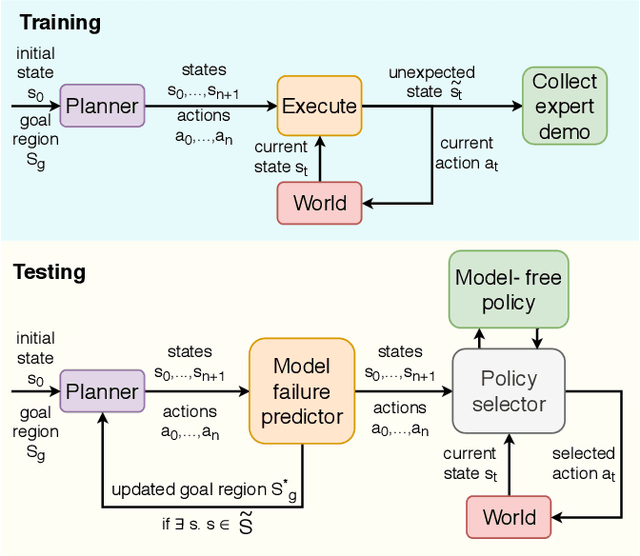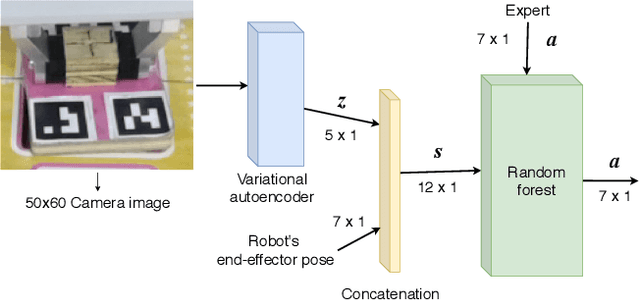Learning Skills to Patch Plans Based on Inaccurate Models
Paper and Code
Sep 29, 2020



Planners using accurate models can be effective for accomplishing manipulation tasks in the real world, but are typically highly specialized and require significant fine-tuning to be reliable. Meanwhile, learning is useful for adaptation, but can require a substantial amount of data collection. In this paper, we propose a method that improves the efficiency of sub-optimal planners with approximate but simple and fast models by switching to a model-free policy when unexpected transitions are observed. Unlike previous work, our method specifically addresses when the planner fails due to transition model error by patching with a local policy only where needed. First, we use a sub-optimal model-based planner to perform a task until model failure is detected. Next, we learn a local model-free policy from expert demonstrations to complete the task in regions where the model failed. To show the efficacy of our method, we perform experiments with a shape insertion puzzle and compare our results to both pure planning and imitation learning approaches. We then apply our method to a door opening task. Our experiments demonstrate that our patch-enhanced planner performs more reliably than pure planning and with lower overall sample complexity than pure imitation learning.
 Add to Chrome
Add to Chrome Add to Firefox
Add to Firefox Add to Edge
Add to Edge